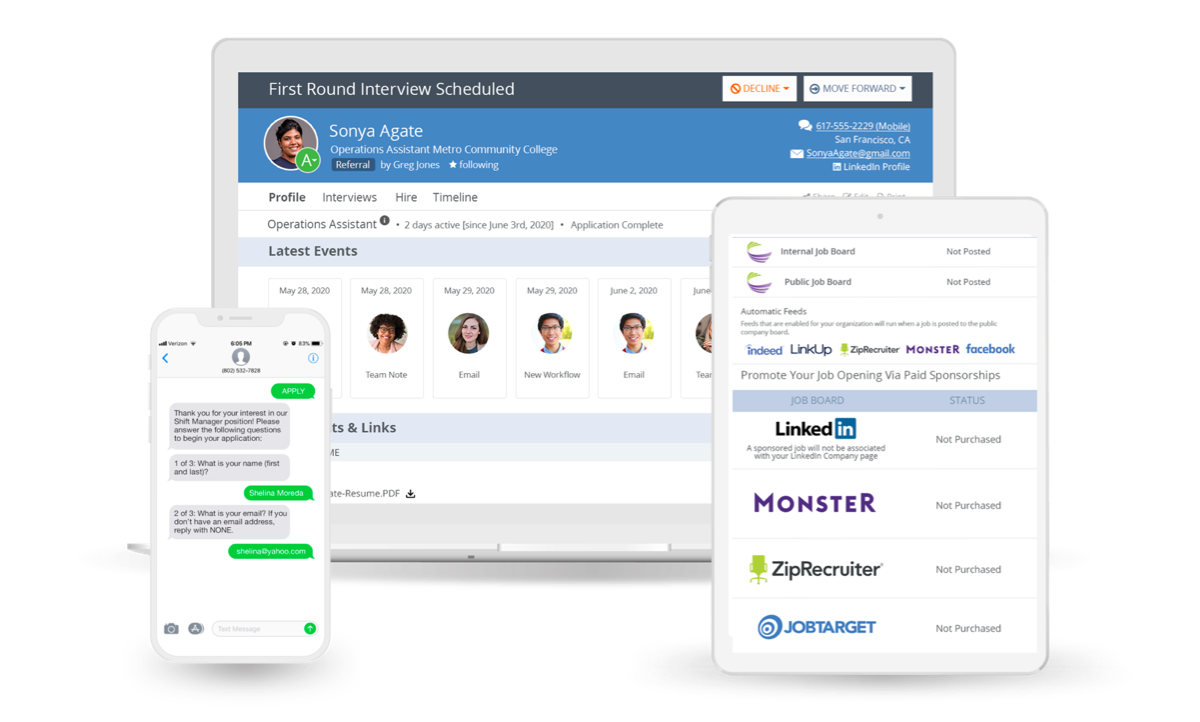A human resources department is a necessity for a successful company in any industry. HR teams are responsible for finding and hiring workers, ensuring they get paid, and maintaining a safe, compliant workplace. This work is especially crucial in construction, where delays and compliance violations can drive up costs, and skilled labor is a hot commodity.
Though they’re important duties, HR’s role in construction goes far beyond hiring and compliance — as you’re well aware.
Your team creates schedules, handles interpersonal conflicts, and plans company events. You administer training programs and maintain a safe work environment. While construction already has some of the happiest workers in any sector, that doesn’t mean a motivated, loyal workforce is a guarantee. You’re also in charge of maintaining worker morale and fostering a positive work culture.
In this post, we’ll take a closer look at the responsibilities of HR in the construction sector and the initiatives they lead. We’ll also share strategies to help your HR team have a positive impact on the organization.
Why Is HR Important in the Construction Industry?
No matter the products it sells or services it offers, every business needs an HR department — even if it’s a department of one. The role of HR in the construction industry is even more crucial. Your HR team handles everything from managing a diverse workforce to addressing unique industry challenges like high turnover and labor shortages. You’re doing all this and more while contending with limited resources and project deadlines.
Construction sites can be dangerous places, so it’s critical that all workers are trained on safety protocols and have access to necessary protective equipment. Violating safety standards can lead to serious consequences, so it’s imperative to stay up to date on regulatory changes and regularly train employees. HR is also typically responsible for conducting safety audits and handling workplace injuries or accidents, should they occur.
There’s a lot of pressure for construction projects to stay on schedule and avoid added costs. But unfortunately, construction is also a high-turnover industry, and more workers are retiring than entering the sector. That means it’s likely that your HR team has never had more trouble finding workers with the right skills, and you probably have more than a few projects that are off schedule or over budget.
The combination of high turnover rates and a lack of skilled labor means most HR teams are constantly searching for workers to keep projects moving forward. You need new recruitment strategies and a great candidate experience to attract more applicants. You also have to create effective retention programs, which can include financial incentives or development opportunities, so employees stick around as long as possible.
Construction companies need HR to ensure they have the right staff on site, fewer workers quit, and every employee can work safely.
Discover the critical role of HR in construction, from compliance to employee reskilling. 🏢⚖️
HR in Construction: Key Responsibilities and Challenges
It should be clear now why HR is such an important part of a construction business. Let’s take a closer look at a few of the department’s key responsibilities in the sector.
Tailored Recruitment Strategies
Recruiting new employees is one of HR’s most important responsibilities, but it’s made more difficult by one of the biggest HR challenges in construction: the labor shortage. The labor shortage means HR teams have to be creative to attract talent — your team can’t rely on old recruiting strategies. You’re constantly looking for new channels to advertise your roles, partnering with educational institutions to bring new talent into the industry, and introducing new perks and benefits to bring in candidates.
Simplify candidate outreach with our drip campaign email templates.
Employee Training and Development
Training construction workers thoroughly is a must in the high-stakes industry, where safety protocols must be followed to avoid injuries and violations. Most of the training takes place in person, and it’s not just a quick class or demonstration. Working on a construction site requires ongoing training that’s regularly updated to stay compliant when rules and regulations change.
On top of essential safety training, HR also needs to provide development opportunities to help close the historic skills gap the construction industry faces. A skills gap means that at many companies, the current workforce doesn’t have the skills the company needs or will soon need. To close any gaps, your HR managers or HR professionals are responsible for first identifying the gaps to understand the skills needed. Then, you can both recruit for those skills and reskill members of your current workforce to meet your company’s needs.
Pinkard Construction was battling bottlenecks and inefficient recruitment processes — until they found ClearCompany. Learn how we helped
Pinkard Construction achieve recruiting success.
Labor Relations and Conflict Resolution
Construction sites and projects involve a diverse range of workers. They can include temporary employees, experienced construction managers, and even workers from entirely different industries. Your HR team needs to communicate clearly with all of these team members so everyone understands what’s expected of them.
You also need to listen to workers' concerns to prevent misunderstandings. When conflicts happen, HR steps in to help solve them. Your team finds out what's causing the conflict by talking through issues or holding meetings and works together to fix it.
Creating a positive work environment where conflicts are rare is also key. Your team is in charge of organizing team activities and fostering an environment of respect and cooperation. That helps keep your employees happy and productive so you can deliver successful construction projects.
Worker Health and Safety
As we mentioned, your HR team ensures workers stay safe on the job with regular training and by staying on top of regulations. Often, your team is also responsible for conducting safety checks in addition to ongoing training sessions. Simple strategies like safety drills and clear signage around the worksite can help prevent accidents. Health and safety also means ensuring workers get adequate breaks, especially in extreme conditions, and that job sites are psychologically safe for everyone.
HR helps create a culture of safety to protect workers and keep projects running smoothly. A safe workplace not only prevents injuries but also boosts morale and productivity among the team.
Engage, Retain, Succeed: How to Elevate HR in Construction
To manage today’s challenges and ensure the long-term success of your construction business, you need to continually update and modernize your HR strategies. Here are a few strategies you can implement.
Adopt Modern, AI-Powered HR Software
Embracing technology-driven HR solutions gives your team a suite of tools to manage your construction workforce and gain an edge over your hiring competitors. With AI-powered HR software, you can streamline your recruitment workflows with lightning-fast candidate sourcing and talent matching. AI helps build a pool of qualified talent and then surfaces the candidates who best match your job description. You’re able to build stronger talent pipelines, reach those top candidates faster, and hire quickly and confidently.
AI-powered construction HR software also enhances your talent analytics for better decision-making. It learns from all talent data, generates easy-to-read reports and visualizations, and helps you uncover patterns and connections in your data. The most advanced AI tools can respond to your natural-language questions and help you share insights with interactive, engaging visualizations. With these advanced tools, your HR team can optimize talent acquisition processes, improve employee engagement, and drive project efficiency.
Reskill Your Employees
Employee reskilling helps motivate and build loyalty among your workforce. Offering targeted training programs boosts job satisfaction and equips your team with the skills they need to tackle future challenges — and your construction business needs to continue growing. When reskilling is a priority, it also helps create a culture of continuous learning and development. That helps you retain top talent and foster versatility and efficiency, so your team can quickly adapt to new challenges and demands.
Invest in the Future
Preparing for the future means investing in leadership development and succession planning. When you use construction HR software, it’s easy to identify potential leaders in your company and nurture their strengths. That’s highly motivating for employees who see that there’s room for them to grow and see that your organization cares about their career development.
Then, you can create succession plans and career paths so you’re prepared when vital roles become vacant. You’ll be able to promote from within, hiring internal talent who are ready to step into leadership roles.
It’s crystal clear why HR is such an essential department for construction companies. You’re responsible for staffing, safety, reskilling, and maintaining a positive work culture. You’re continuously experimenting with recruiting strategies to keep projects fully staffed and hang onto those valuable workers. And, you’re planning ahead to future-proof your workforce and your business so the success never stops.
You need a comprehensive software platform designed for construction businesses to keep all of these initiatives on track. ClearCompany’s Talent Management System is the top HR solution for the construction industry.
Get in touch today for your custom demo with a ClearCompany expert.


